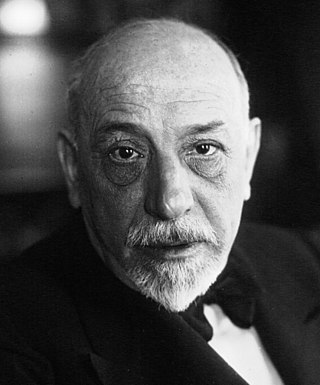
Luigi Pirandello was an Italian dramatist, novelist, poet, and short story writer whose greatest contributions were his plays. He was awarded the 1934 Nobel Prize in Literature "for his bold and ingenious revival of dramatic and scenic art" Pirandello's works include novels, hundreds of short stories, and about 40 plays, some of which are written in Sicilian. Pirandello's tragic farces are often seen as forerunners of the Theatre of the Absurd.

Don Camillo and Peppone are the fictional protagonists of a series of works by the Italian writer and journalist Giovannino Guareschi set in what Guareschi refers to as the "small world" of rural Italy after World War II. Most of the Don Camillo stories came out in the weekly magazine Candido, founded by Guareschi with Giovanni Mosca. These "Little World" stories amounted to 347 in total and were put together and published in eight books, only the first three of which were published when Guareschi was still alive.
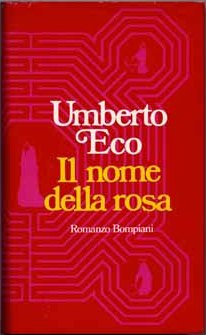
The Name of the Rose is the 1980 debut novel by Italian author Umberto Eco. It is a historical murder mystery set in an Italian monastery in the year 1327, and an intellectual mystery combining semiotics in fiction, biblical analysis, medieval studies, and literary theory. It was translated into English by William Weaver in 1983.

Dr. Henry Jekyll, nicknamed in some copies of the story as Harry Jekyll, and his alter ego, Mr. Edward Hyde, is the central character of Robert Louis Stevenson's 1886 novella Strange Case of Dr Jekyll and Mr Hyde. In the story, he is a good friend of main protagonist Gabriel John Utterson.
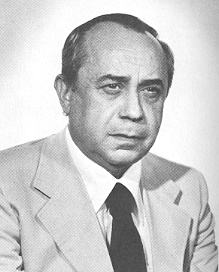
Leonardo Sciascia was an Italian writer, novelist, essayist, playwright, and politician. Some of his works have been made into films, including Porte Aperte, Cadaveri Eccellenti, Todo Modo and Il giorno della civetta. He is one of the greatest literary figures in the European literature of the 20th century.

Philo Vance is a fictional amateur detective originally featured in 12 crime novels by S. S. Van Dine in the 1920s and 1930s. During that time, Vance was immensely popular in books, films, and radio. He was portrayed as a stylish—even foppish—dandy, a New York bon vivant possessing a highly intellectual bent. "S. S. Van Dine" was the pen name of Willard Huntington Wright, a prominent art critic who initially sought to conceal his authorship of the novels. Van Dine was also a fictional character in the books, a sort of Dr. Watson figure who accompanied Vance and chronicled his exploits.

Le ChevalierC. Auguste Dupin is a fictional character created by Edgar Allan Poe. Dupin made his first appearance in Poe's 1841 short story "The Murders in the Rue Morgue", widely considered the first detective fiction story. He reappears in "The Mystery of Marie Rogêt" (1842) and "The Purloined Letter" (1844).

The Gorgon is a 1964 British horror film directed by Terence Fisher for Hammer Films. It stars Christopher Lee, Peter Cushing, Richard Pasco and Barbara Shelley.
To Each His Own may refer to:

Equal Danger is a 1971 detective novel by Leonardo Sciascia where a police inspector investigating a string of murders finds himself involved in existential political intrigues. Set in an indeterminate country this novel is informed by the corrupt politics and the Mafia of Sciascia's experiences in 1970s Sicily.

Eraclio Petri, commonly known as Elio Petri, was an Italian film and theatre director, screenwriter and film critic. The Museum of Modern Art described him as "one of the preeminent political and social satirists of 1960s and early 1970s Italian cinema". His film Investigation of a Citizen Above Suspicion won the 1971 Academy Award for Best Foreign-Language Film, and his subsequent film The Working Class Goes to Heaven received the Palme d'Or at the 1972 Cannes Film Festival.
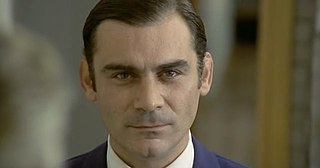
Gian Maria Volonté was an Italian actor and activist. He is best known for his roles in four Spaghetti Western films: Ramón Rojo in Sergio Leone's A Fistful of Dollars (1964), El Indio in Leone's For a Few Dollars More (1965), El Chuncho Munoz in Damiano Damiani's A Bullet for the General (1966) and Professor Brad Fletcher in Sergio Sollima's Face to Face (1967).

Strangers on a Train (1950) is a psychological thriller novel by Patricia Highsmith about two men whose lives become entangled after one of them proposes they "trade" murders.
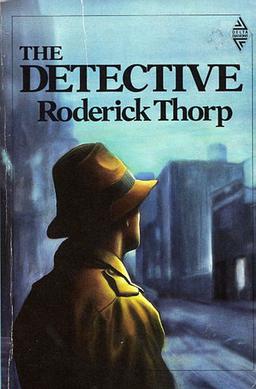
The Detective is a thriller/detective novel by American author Roderick Thorp, first published hardcover in 1966. It was made into the 1968 movie of the same name, starring Frank Sinatra, as Detective Joe Leland. Billed as "an adult look at police life", The Detective went on to become one of the highest-grossing films of 1968 and one of the strongest box-office hits of Sinatra's acting career.

The Day of the Owl is a 1968 Italian–French crime drama film directed by Damiano Damiani, based on the 1961 novel of the same name by Leonardo Sciascia, adapted for the screen by Damiani and Ugo Pirro. It stars Franco Nero, Claudia Cardinale, and Lee J. Cobb. Set in a small Sicilian town, the story follows a Carabinieri chief investigating a murder, hampered by the deep-seated presence of the Mafia that perpetuates a culture of silence.

Il divo is a 2008 Italian biographical drama film directed by Paolo Sorrentino. It is based on the figure of former Italian Prime Minister Giulio Andreotti. It competed at the Cannes Film Festival in 2008, where it was awarded the Jury Prize. The film also screened at the Toronto International Film Festival and was nominated for the Oscar for Best Makeup at the 82nd Academy Awards in 2010.
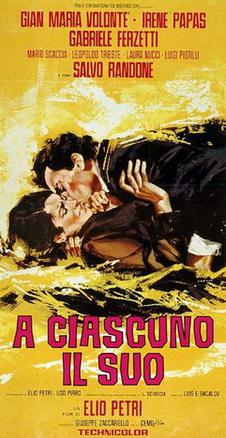
We Still Kill the Old Way is a 1967 Italian crime film directed by Elio Petri. It is based on the novel To Each His Own by Leonardo Sciascia.

The Monster of Florence is the name commonly used by the Italian media for a non-definitively identified serial killer active within the Metropolitan City of Florence between 1968 and 1985. The Monster murdered 16 victims, usually young couples secluded in search of intimacy, in wooded areas during new moons. Several connected persons have been convicted for involvement in the murders, yet the exact sequence of events, the identity of the main actor and the motives remain unclear.

Mystery is a 1990 novel by American author Peter Straub, the second installment in Straub's loosely connected "Blue Rose Trilogy". The novel falls into the genre of crime fiction, and was preceded by Koko and followed by The Throat. The book was published by Dutton, won the 1993 Bram Stoker Award and was a 1994 WFA nominee
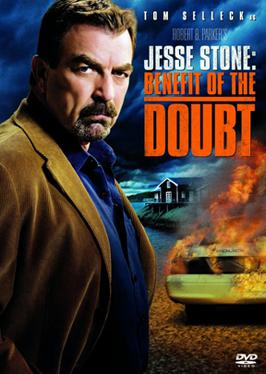
Jesse Stone: Benefit of the Doubt is a 2012 American made-for-television crime drama film directed by Robert Harmon and starring Tom Selleck, Kathy Baker, and Kohl Sudduth. Based on the characters from the Jesse Stone novels created by Robert B. Parker, the film is about the police chief of a small New England town who returns from his forced retirement after his replacement is blown up in the town police car. The story is set in the fictitious town of Paradise, Massachusetts.


















